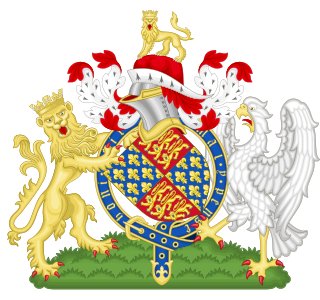Blasphemous libel was originally an offence under the common law of England. Today, it is an offence under the common law of Northern Ireland, but has been abolished in England and Wales, and repealed in Canada and New Zealand. It is a form of criminal libel that consists of the publication of material which exposes the Christian religion to scurrility, vilification, ridicule, and contempt, with material that must have the tendency to shock and outrage the feelings of Christians.
In certain jurisdictions, including the United Kingdom and other Westminster-influenced jurisdictions, as well as the United States and the Philippines, primary legislation has both a short title and a long title.

The Irish Free State (Agreement) Act 1922 was an Act of the British Parliament passed on 31 March 1922. It gave the force of law to the Anglo-Irish Treaty, which was scheduled to the Act.
The law of Northern Ireland is the legal system of statute and common law operating in Northern Ireland since the partition of Ireland established Northern Ireland as a distinct jurisdiction in 1921. Prior to 1921, Northern Ireland was part of the same legal system as the rest of Ireland.

The Official Secrets Act 1911 was an Act of the Parliament of the United Kingdom. It replaced the Official Secrets Act 1889.

An Act for the better securing the dependency of the Kingdom of Ireland on the Crown of Great Britain was a 1719 Act passed by the Parliament of Great Britain which declared that it had the right to pass laws for the Kingdom of Ireland, and that the British House of Lords had appellate jurisdiction for Irish court cases. It became known as the Declaratory Act, and opponents in the Irish Patriot Party referred to it as the Sixth of George I. Legal and political historians have also called it the Dependency of Ireland on Great Britain Act 1719 or the Irish Parliament Act 1719. Prompted by a routine Irish lawsuit, it was aimed at resolving the long-running dispute between the British and the Irish House of Lords as to which was the final court of appeal from the Irish Courts. Along with Poynings' Law, the Declaratory Act became a symbol of the subservience of the Parliament of Ireland, and its repeal was long an aim of Irish statesmen, which was finally achieved for Anglican Irish as part of the Constitution of 1782.

The Criminal Law Act 1967 is an Act of the Parliament of the United Kingdom that made some major changes to English criminal law, as part of wider liberal reforms by the Labour government elected in 1966. Most of it is still in force.
Statute Law Revision Act is a stock short title which has been used in Antigua, Australia, Barbados, Bermuda, Canada, Ghana, the Republic of Ireland, South Africa and the United Kingdom, for Acts with the purpose of statute law revision. Such Acts normally repealed legislation which was expired, spent, repealed in general terms, virtually repealed, superseded, obsolete or unnecessary. In the United Kingdom, Statute Law (Repeals) Acts are now passed instead. "Statute Law Revision Acts" may collectively refer to enactments with this short title.

The Criminal Law Act 1967 is an act of the Parliament of Northern Ireland. It makes similar provision to the Criminal Law Act 1967 for Northern Ireland.

The Interpretation Act 1889 was an act of the Parliament of the United Kingdom.

The Libel Act 1843, commonly known as Lord Campbell's Libel Act, was an Act of the Parliament of the United Kingdom. It enacted several important codifications of and modifications to the common law tort of libel.

The Recreational Charities Act 1958 was an Act of the Parliament of the United Kingdom that was repealed in its entirety by the Charities Act 2011.

The Statute of Praemunire was an Act of the Parliament of England enacted in 1392, during the reign of Richard II. Its intention was to limit the powers of the papacy in England, by making it illegal to appeal an English court case to the pope if the king objected, or for anyone to act in a way that recognized papal authority over the authority of the king. In the 15th century it came to be read as including within its ban ecclesiastical courts inside England. The statute was later reaffirmed by the Statute in Restraint of Appeals in the reign of Henry VIII and was used to remove Thomas Wolsey from power. The word praemunire originally referred to the writ of summons issued against a person accused under this and similar statutes, and later came to mean offences against the statutes.

The Infanticide Act 1939 (NI) is an Act of the Parliament of Northern Ireland. It makes similar provision to the Infanticide Act 1938 for Northern Ireland.

The Defamation Act 1952 is an Act of the Parliament of the United Kingdom.

The Defamation Act 1996 is an Act of the Parliament of the United Kingdom.

The Statute Law Revision Act 1954 is an act of the Parliament of Northern Ireland.
Irish fisheries law is the fisheries law of Ireland. It relates to Irish fisheries.

The Law of Libel Amendment Act 1888 was an act passed by the Parliament of the United Kingdom, clarifying and "amplifying" the defence of qualified privilege in cases involving the verbatim reproduction of court proceedings, the minutes of select committees, police notices or various other specifically recognised kinds of meetings, which had, in vaguer terms, been laid out in the Newspaper Libel and Registration Act 1881.

The Defamation Act 2013 is an Act of the Parliament of the United Kingdom, which reformed English defamation law on issues of the right to freedom of expression and the protection of reputation. It also comprised a response to perceptions that the law as it stood was giving rise to libel tourism and other inappropriate claims.






